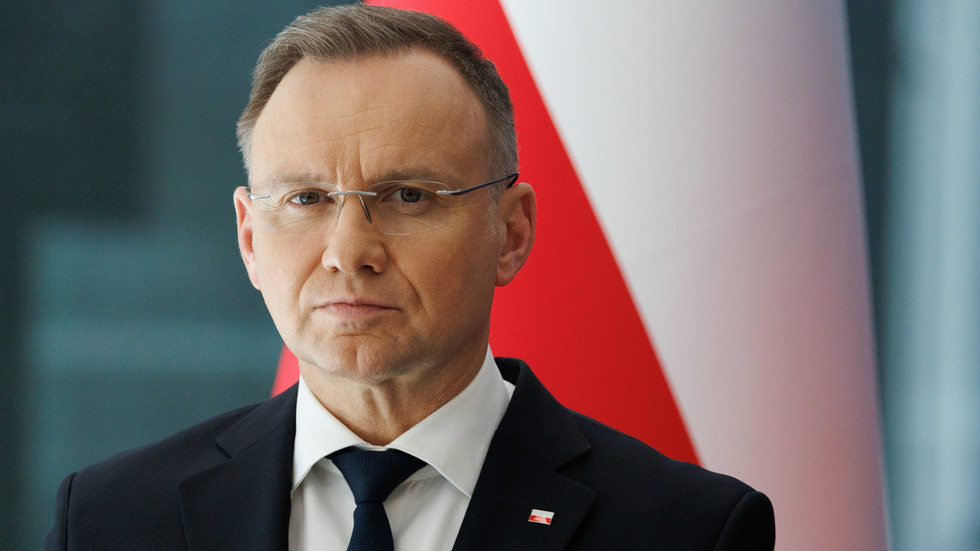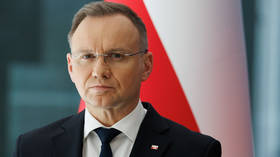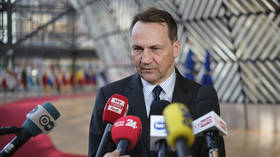
Poland’s Andrzej Duda has contradicted Prime Minister Donald Tusk, who had claimed that Europe is in a “pre-war era”

Polish president Andrzej Duda. © Luka Dakskobler/Getty Images
There is no imminent threat of a military conflict breaking out in Europe, Polish President Andrzej Duda has said, contradicting the country’s prime minister. Late last month, Donald Tusk claimed that the continent was in a “pre-war era.”
The prime minister argued at the time that “literally any scenario is possible.” Tusk also warned that “no one in Europe will be able to feel safe” if the West fails to provide Ukraine with enough weapons, allowing Russia to prevail in the conflict.
When asked whether he shared the prime minister’s grim outlook during an interview with Poland’s Fakt media outlet on Monday, Duda replied in the negative. “If we act responsibly, and we are acting responsibly so far, there will never be a war, because we will always be powerful enough to not be worth attacking,” he said.
According to the Polish president, credible deterrence helped the West to prevent the Cold War from turning into a military confrontation. He suggested that the West today should emulate this strategy by arming up.

He also said his country was ready to host the nuclear weapons of NATO allies as part of a sharing scheme within the bloc if such a decision were made.
Earlier this month, UK Defense Secretary Grant Shapps echoed Tusk’s assessment, claiming that “we have moved from a post-war to a pre-war world.” He argued that the West needed to beef up its defense spending.
EU High Representative for Foreign Affairs and Security Policy Josep Borrell also subsequently stated that the “possibility of a high-intensity conventional war in Europe is no longer a fantasy.”
Moscow has repeatedly denied having any intention of attacking NATO member states. Russian President Vladimir Putin has dismissed such claims as “nonsense,” suggesting that Kiev’s backers were using the supposed threat of a Russian attack to “extract additional expenses from people, to make them bear this burden [of funding Ukraine] on their shoulders.”




